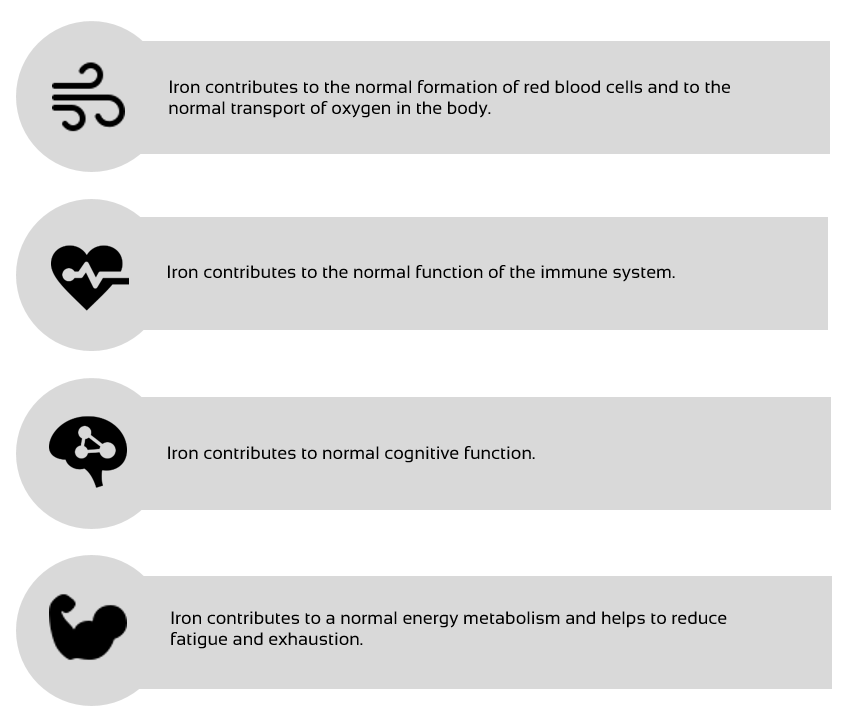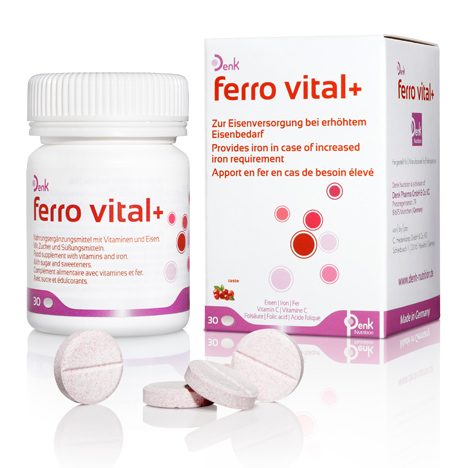
Iron – the strong mineral
As a component of the red blood pigment haemoglobin, iron is particularly responsible for transporting oxygen in the body. Iron can be stored in the liver, spleen, bone marrow and muscles. The human body cannot produce iron itself, so it must be ingested through food. According to the WHO, iron deficiency is one of the most frequent deficiency symptoms worldwide.
Functions in the body
Iron fulfils a variety of important functions in the body:

Intake recommendations
The need for iron depends on various factors, such as age and sex. According to the American Institute of Medicine, the daily requirement of a healthy adult man is 8 mg of iron per day; a woman needs 18 mg. The German Nutrition Society (Deutsche Gesellschaft für Ernährung e.V., DGE) recommends 10 mg iron per day for men and 15 mg iron per day for women. A higher daily requirement exists during pregnancy. According to the Institute of Medicine, a daily intake of 27 mg iron is recommended for pregnant women. However, iron supplements should only be taken during and after pregnancy as part of a medical examination of your iron levels and with corresponding instructions.
Occurrence in food
· Red meat
· Oat flakes
· Lentils
· Pumpkin seeds
· Soya beans
· Egg yolk
